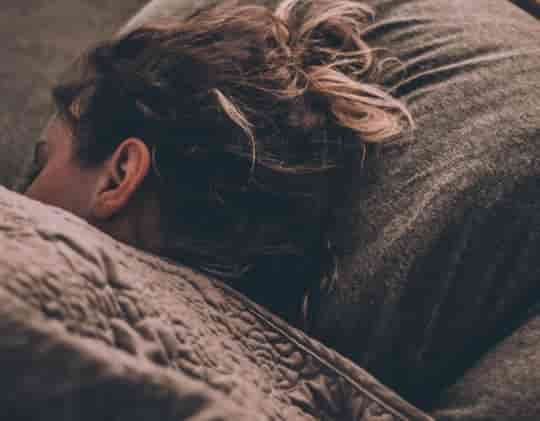Lack of sleep affects all kinds of cognitive functions, including memory, attention and learning.
As little as two hours less sleep than normal is enough to change people’s emotional experience during the day, a study finds.
People feel fewer positive emotions after just one night of reduced sleep.
However, people did not feel more depressed after getting less sleep than normal.
So, people’s emotions change, explained Dr Ingvild Saksvik-Lehouillier, the study’s first author, but…
“…not in the sense that we have more negative feelings, like being down or depressed.
But participants in our study experienced a flattening of emotions when they slept less than normal.
They felt less joy, enthusiasm, attention and fulfilment.”
The study included 52 people who slept for two hours less than normal and then were given tests of their emotions.
Dr Saksvik-Lehouillier explained:
“In the imposed sleep deprivation phase, participants crawled under their covers two hours later than they normally did, and had to get up at their usual time.”
Lack of sleep affects all kinds of cognitive functions, including memory, attention and learning.
However, the researchers were most interested in its effects on the emotions, particularly as poor sleep is linked to mental health problems.
Dr Saksvik-Lehouillier said:
“We didn’t find clear differences when it came to the negative emotions, but there were marked differences for the positive ones.
Positive feelings scored worse after just one night of reduced sleep, and dropped even more after three nights.
I think this is a really interesting find.
We already know that fewer positive emotions have a major impact on mental health.
We also know that poor sleep is included in virtually all mental health diagnoses.”
People are sleeping less and less around the world and the problem has been made worse by the pandemic.
Dr Saksvik-Lehouillier said:
“It’s easy for us to go to bed later than we should, especially when we think, ‘I just have to finish watching this series.’
But we still have to get up to go to work, or study, or deliver our kids to kindergarten.
This contributes to getting too little sleep.
How long we sleep is just part of the picture, but when we sleep is also important.
An irregular circadian rhythm can be worse than sleeping too little.
Going to bed and getting up at the same time is recommended.”
Different people need different amounts of sleep, said Dr Saksvik-Lehouillier:
“Sleep is individual.
Not everyone needs to sleep seven and a half hours every night.
And we’re A and B people.
Some of us like to stay up till the wee hours, others love to rise and shine early in the morning.
The most important thing is how you feel.
If you’re in a good mood and alert when you get up, those are indications that your sleep habits are working for you.”
The study was published in the journal Sleep (Saksvik-Lehouillier et al., 2020).

